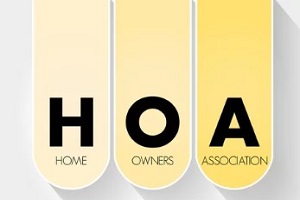 Living in a homeowners association grants community members special rights and assurances that non-association homeowners do not have. For example, HOA community members can rest assured that their sidewalks will be maintained and that the homes in their neighborhood will look consistent and well kept.
Living in a homeowners association grants community members special rights and assurances that non-association homeowners do not have. For example, HOA community members can rest assured that their sidewalks will be maintained and that the homes in their neighborhood will look consistent and well kept.
In exchange for these certainties, homeowners associations require that those living in the neighborhood pay regular dues to support the costs of these conveniences.
However, sometimes unexpected issues arise, or budgetary constraints limit the repairs that can be done by the governing body. In these situations, a bill for a special assessment can be assigned to homeowners living in the HOA.
These bills can come as a financial shock, requiring hundreds of unplanned dollars from a person’s budget causing many to wonder what will happen if they don’t pay the special assessment.
Here is what homeowners should know about how HOA special assessments work, including how to challenge them and what might happen if they choose not to pay.
What Is a Special Assessment?
Special assessments are a type of financial requirement that can be imposed on residents in an HOA. Normally, the HOA collects regular dues as part of its contract with homeowners, and these are used to fund important maintenance and repairs around the community.
However, some repairs may cost more than the HOA has gathered through normal dues, or an emergency might prompt the governing body to request additional funds for an urgent repair. This can happen if a tornado destroys a community structure, for instance.
In these situations, the HOA can choose to levy a special assessment to collect further compensation to be used toward the repairs. Special assessments are typically limited to a percentage of the gross budgetary expenses for the year; in California, for example, an HOA cannot charge community members more than 5% of their fiscal year budget without bringing the issue to a vote. This 5% is spread across all HOA community members, so each member does not need to pay the full 5%.
What Happens If You Don’t Pay an HOA Special Assessment
Homeowners are often understandably frustrated to receive an unexpected bill, and this circumstance can become even more upsetting if the bill is for an item or service that the homeowner does not use. If the tennis court was damaged during a severe storm but a homeowner in the community does not play tennis, can they choose not to pay the special assessment?
In short, the answer is yes—but with consequences. Special assessments are written into HOA contracts in order to ensure that all members of the community are contributing equally to the upkeep and wellbeing of the properties and public areas.
This means that everyone is expected to pay special assessments, regardless of whether they use the feature that is being repaired. Choosing not to pay an HOA special assessment will usually be met with repercussions.
The most common penalty that occurs when a homeowner does not pay an HOA special assessment is a fine or late fee. This only increases the amount of the bill, making it more burdensome.
Depending on the content of the HOA contract signed by the homeowner, the governing body may limit or entirely restrict that homeowner’s use of public common areas, such as gyms, pools and parking. In severe cases of non-payment, the HOA may elect to place a lien on the home.
Methods of Challenging an Assessment
 Homeowners associations are within their rights to levy special assessments, but it is possible for them to do so incorrectly. If they are billing more than the legal 5% without a public vote, for example, residents are within their rights to seek legal help to fight the assessment.
Homeowners associations are within their rights to levy special assessments, but it is possible for them to do so incorrectly. If they are billing more than the legal 5% without a public vote, for example, residents are within their rights to seek legal help to fight the assessment.
Similarly, if an HOA attempts to seek compensation from a special assessment for a repair that does not qualify as an emergency, they may be acting outside of their permitted range of influence. In these situations, homeowners can choose to seek legal guidance before paying the assessment to ensure that their community leaders are acting appropriately.
Get Legal Help From HOA Professionals
When a special assessment arrives at your door, you may have questions about your responsibility to pay or how the community is managing its funds. If you need help resolving issues with an HOA, work with an experienced legal team.
The attorneys at Lehr Law are proud to offer personalized guidance to our clients as they navigate the challenging arena of HOA disputes. Contact our firm to schedule a consultation to share your special assessment situation and get the help you need.
